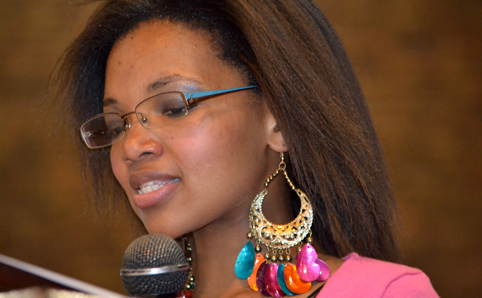Latest News Archive
Please select Category, Year, and then Month to display items
11 January 2021
|
Story André Damons
|
Photo Supplied
 Dr Ralph Clark
Dr Ralph Clark
The Afromontane Research Unit (ARU), the flagship research group of the University of the Free State (UFS) Qwaqwa Campus, has recently been granted R8,4 million to establish a Risk and Vulnerability Science Centre programme.
The Risk and Vulnerability Science Centre (RVSC) programme was established by the Department of Science and Innovation (DSI) as part of the Global Change Research Plan for South Africa and is funded by the DSI through the National Research Foundation (NRF). The RVSC will focus on the need to generate and disseminate knowledge about risk and vulnerability on global change challenges faced by local policy makers/ governance structures and communities in South Africa.
Invited to participate
Dr Ralph Clark, Director of the ARU, says the UFS, together with the University of Zululand and the Sol Plaatje University, has been invited to participate in Phase 2 of the RVSC programme. Dr Clark was approached by the DSI (on referral from the South African Environmental Observation Network – SAEON) in February 2020 regarding the potential for establishing a RVSC at the UFS Qwaqwa campus.
Subsequent interactions were held between the UFS and DSI, and in March 2020, the UFS formally accepted the DSI invitation. It has since been agreed that the RVSC: UFS will be hosted as a RVSC under the ARU umbrella, with dedicated personnel embedded at the UFS in this regard (internal processes and reporting) but reporting directly to the NRF regarding the RVSC.
Interest and support welcomed
Dr Clark welcomed this interest and support from the DSI-NRF, saying that the funds will further assist the UFS in growing its excellent and growing research portfolio and building more research capacity on this traditionally undergraduate-focused campus. “The RVSC will contribute to much-needed solutions in an area marked by major sustainability challenges and will assist in moving Phuthaditjhaba away from its negative apartheid history towards becoming a sustainable African mountain city,” says Dr Clark.
Beyers Naudé challenge still stands – Dr Allan Boesak
2011-09-14
|

|
|
Dineo Babili, a first-year Foundation-phase Education student, reading out her winning essay during the final Beyers Naudé Memorial Lecture held last Friday. Dineo and Siphesihle Mavundla (poetry) both won R3 000,00 each from Kagiso Trust.
Photo: Thabo Kessah
|
The eighth Annual Beyers Naudé Memorial Lecture Series reached its climax with the third and last lecture being presented by Dr Allan Boesak at our Qwaqwa Campus on Friday, 9 September 2011. The first two lectures were presented by our Vice-Chancellor and Rector, Prof. Jonathan Jansen, and Prof. Kwandiwe Kondlo who heads our Centre for Africa Studies, respectively.
In his address, Dr Boesak posed hard-hitting questions, such as ‘'What kind of society do we want to be? At what price are we willing to sell the noble history of the struggle, the ideals and hopes of our people, the meaning of the freedom we sacrificed for?'’ He spoke fondly of his former friend and colleague who had appealed to the government of the day in 1973 to understand that the future security of our country did not lie with a consensus of white opinion, but rather ‘'a consensus of white and black opinion'’.
Dr Boesak said that Oom Bey had asked white people ‘to speak and act before it was too late’ and that he appealed to black people to prepare for the day on which they would be truly free.
‘'That was his hope. When he died, democracy had come, but this hope had not been realised and today we are in serious danger of losing it altogether. We have the matchless Freedom Charter; we have a most progressive Constitution; we have an impressive body of laws and we have enviable policy positions. However, the challenge from Beyers Naudé still stands and it comes to a new generation: it is time to transform words into deeds. The time for pious talk is over,'’ said Dr Boesak.
The lecture was well received by students and staff, as well as leaders and representatives from various sectors in the community. Learners and educators from a number of schools in the region also attended. Next year’s series will be hosted on the South Campus in Bloemfontein.